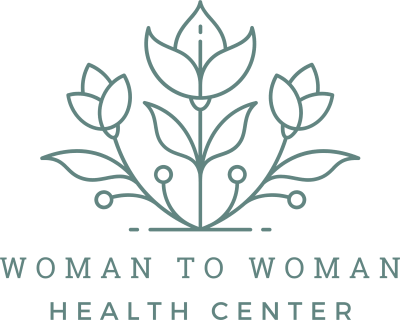By Jillian Tekell, Birth Doula

You’ve just given birth and are ready to rest and enjoy your baby. And rightly so! You’ve worked hard and need time to allow your body to recover. The postpartum period, or fourth trimester, is just as important as the first three trimesters of pregnancy as your body heals and as you bond with your baby.
During the postpartum period, you may notice various symptoms as your body recovers. Some of these can be very normal, such as feeling tired and sore, while others can be serious and even life-threatening. These can even occur up to a year after giving birth. For that reason, if something doesn’t feel right, it’s a good idea to call your doctor. It’s also very important to not miss any of your postpartum appointments, even if you feel fine. These checkups allow for your doctor to make sure you are healing well and to identify and treat any concerning symptoms.
Risk Factors for Postpartum Complications:
Some women are at higher risk of experiencing postpartum complications, particularly if they have a chronic health condition such as high blood pressure, obesity, or cardiac disease. If you have one of these conditions, it is especially important that you pay attention to your postpartum health and watch for potential warning signs. It is important to discuss these conditions with your doctor at prenatal visits as well.
General Warning Signs:
A few warning signs to watch for include the following. Call 911, or go to an emergency room if you experience any of these.
- Difficulty breathing
- Seizures
- Chest pain or changes in your heartbeat
- Thoughts of hurting yourself or your baby
Signs of Infection:
Sometimes infection can occur after delivery. If you experience any of these symptoms, call your doctor.
- Fever above 100.4˚F
- Discharge, redness, or pain around an incision that doesn’t heal or worsens
- Severe pain in your lower abdomen
- Painful lumps in your breast and/or red streaks on your breast
- A burning sensation or pain when you urinate, needing to urinate often, or pain in your lower back
- Vaginal discharge that has a strong odor
Signs of Sepsis:
If an infection is untreated and progresses, it can lead to sepsis, which can be life-threatening. If you have any of these symptoms, call 911, or go to the emergency room.
- Fever
- Chills
- Fast breathing
- Fast heart rate
- Sweaty/clammy skin
- Confusion
- Extreme pain
Additional Symptoms You Don’t Want to Ignore:
Below are some additional symptoms to watch for. If you experience any of these, make sure to call your doctor as soon as possible.
- Heavy bleeding (soaking through more than one pad per hour, passing blood clots that are the size of an egg or larger, or passing tissue)
- Severe nausea and vomiting
- Dizziness, fainting, or changes in vision
- Severe pain (abdominal, chest, shoulder, back)
- Swelling, redness, pain, or warmth in your legs, particularly your calves
- Severe headache that does not go away or worsens over time
- Sudden weight gain
- Swelling in the hands, legs, or face
- Feeling so overwhelmingly exhausted that you don’t care for your baby
- A strong sense of sadness or hopelessness that last for more than 10 days after giving birth –Many moms experience postpartum depression. If you experience feelings of sadness, anxiety, and/or hopelessness that lasts for a while after birth, reach out to a counselor, or talk with your doctor. Help is available.
Again, it is important to not miss any of your postpartum checkups. Prevention is key to making sure you are healthy and safe. If you are finding it difficult to make it to your appointments, you can talk with your doctor, or ask a friend or family member for help with transportation or childcare. Your health is worth it!
References:
Centers for Disease Control and Prevention. (May 11, 2021). Urgent maternal warning signs. https://www.cdc.gov/hearher/maternal-warning-signs/index.html
March of Dimes. (July, 2018). Warning signs of health problems after birth. https://www.marchofdimes.org/pregnancy/warning-signs-of-health-problems-after-birth.aspx
Mayo Clinic. (April 6, 2019). Postpartum complications: What you need to know. https://www.mayoclinic.org/healthy-lifestyle/labor-and-delivery/in-depth/postpartum-complications/art-20446702
